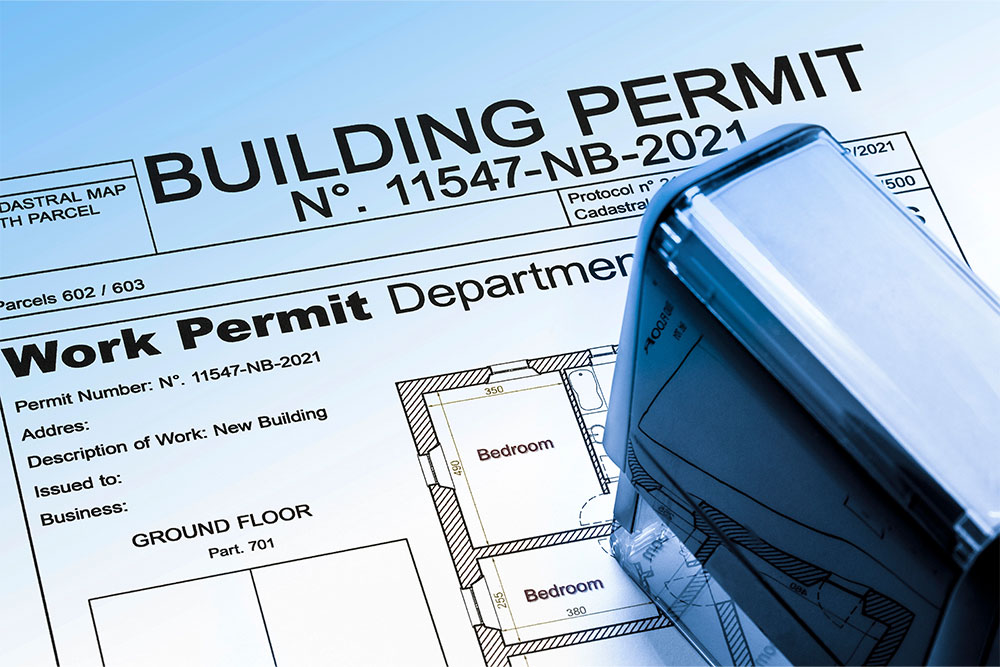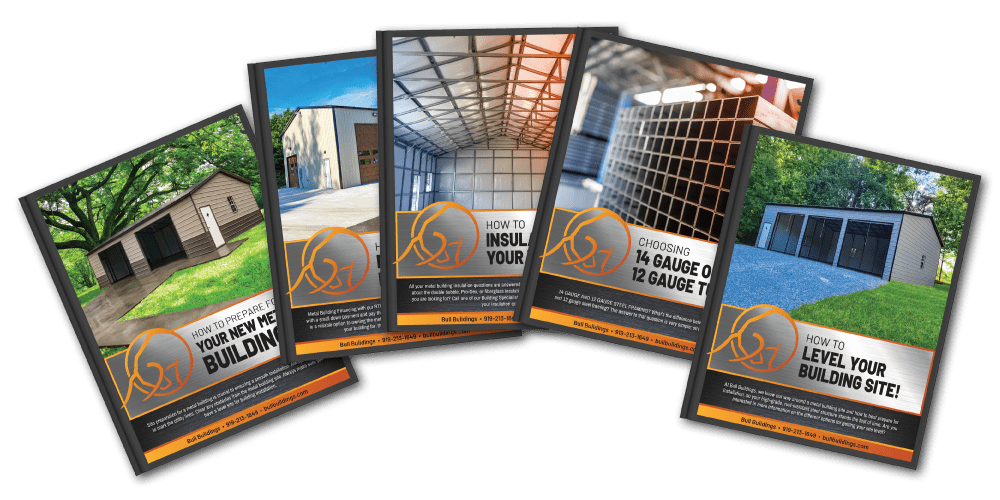
If you’re planning to add a carport to your property, one of the first questions to address is: do metal carports require a permit? The answer depends on a variety of factors, including your location, the size of the structure, and how it will be used. Permits ensure that your carport meets local zoning laws and safety standards. They protect your investment and avoiding potential fines or legal complications.
Before purchasing metal carports, it’s essential to understand what local building codes require. This post guides you through the factors that influence whether you need a permit and the steps to secure one if necessary.
Do You Need A Permit for a Metal Carport?
The need for a permit depends largely on where you live and the specifics of your project. Local governments – whether at the city, county, or state level – typically dictate whether a metal carport requires a permit. In many areas, any new construction or permanent structure must have approval from local authorities before work begins.
Common factors that influence permit requirements include:
- Size of the Carport: Larger structures, typically those exceeding 200 square feet, are more likely to require permits.
- Foundation Type: Carports built on a permanent concrete slab are often classified as permanent structures, necessitating a permit.
- Utilities: If you plan to install electrical wiring or lighting in the carport, you’ll likely need a permit.
- Local Climate: Areas prone to extreme weather, such as heavy snow or high winds, may require additional safety measures, which must be inspected as part of the permit process.
The safest approach is to contact your local building authority to confirm whether your specific project requires a permit. Skipping this step can lead to legal headaches down the road.
Why Are Permits Required for Metal Carports?
Permits serve as a safeguard to ensure that new structures adhere to safety and zoning regulations. When it comes to metal carports, building codes address concerns like structural integrity, proximity to property lines, and the materials used in construction.
Here are some of the primary reasons permits are necessary:
Permits help guarantee that your carport is built to withstand local weather conditions, such as strong winds or heavy snow loads. This minimizes the risk of accidents or property damage.
A permit ensures that your carport complies with zoning laws, such as setbacks from property lines, height restrictions, and usage limitations.
If you construct a carport without a permit and it’s damaged or causes injury, your insurance company may refuse to cover the claim.
Unauthorized construction can lead to hefty fines, or worse, a requirement to tear down the carport altogether.
Permits are particularly important for permanent carports built on concrete slabs, as these are considered more substantial structures than temporary or freestanding carports.
How to Determine Permit Requirements for Your Metal Carport
Reach out to your city or county building office to ask about specific regulations for metal carports. Learn about zoning rules in your area, including property line setbacks, maximum structure size, and permitted uses. Some areas require special measures for structures in regions with high winds, hurricanes, or heavy snow.
The building department may request additional documentation, such as engineering plans or soil tests, to ensure that the carport meets safety standards.
How to Obtain a Permit for Your Metal Carport
If you’ve determined that you need a permit for your metal carport, the next step is to navigate the application process. While the specifics vary by location, the general steps are consistent across most municipalities.
Gather all the required documents and information. This includes details about your property, such as its legal description, plot dimensions, and the intended location of the carport. You’ll also need to provide plans or drawings of the proposed structure. These should indicate the carport’s size, materials, and foundation type, as well as its distance from property lines and other structures.
For carports built on a permanent base or incorporating electrical components, you may need to hire an engineer to prepare detailed blueprints or site plans. Some jurisdictions may also require soil tests or wind load calculations, particularly in areas prone to extreme weather.
Once you have all the necessary documentation, you’ll submit your application to your local building department. There is usually a fee associated with this step, which varies depending on the size and complexity of the project. After submitting your application, an inspector will review it to ensure the proposed carport complies with local building codes.
If approved, you’ll receive your permit, allowing construction to begin. Keep in mind that inspections are often required at various stages of construction to ensure the work is proceeding according to plan. These inspections are essential for securing a final approval certificate once the project is complete.
What Happens If You Don’t Get a Permit?
Constructing a metal carport without the necessary permit can lead to significant consequences, some of which may not be immediately apparent. The most immediate risk is receiving a citation or fine from your local building department. In some cases, the department may issue a stop-work order, halting construction until you obtain the proper approvals.
Beyond financial penalties, unpermitted structures can face demolition orders if they fail to comply with local codes. This means you could lose your investment entirely if your carport does not meet zoning or safety standards.
Even if you manage to avoid detection during construction, issues may arise later. For instance, if you sell your property, the unauthorized carport could become a sticking point during the transaction. Buyers or their lenders may request proof that the structure is permitted, and failure to provide this documentation could delay or jeopardize the sale.
An unpermitted carport can pose safety risks. Without proper inspections, there’s no guarantee the structure is sound, especially in areas with high winds or heavy snowfall. This could result in costly repairs or even liability if the structure collapses and causes injury or property damage.
How Bull Buildings Can Help
We work with trusted manufacturers to provide high-quality, durable metal carports that are designed to last. Whether you’re constructing a carport for personal use or as part of a larger commercial project, our team helps you understand the requirements in your area, from size limitations to foundation specifications.
At Bull Buildings, we take the hassle out of your carport project by guiding you through every step, including permit preparation. By connecting you with manufacturers who prioritize compliance and quality, we help you avoid potential issues with unpermitted structures.




